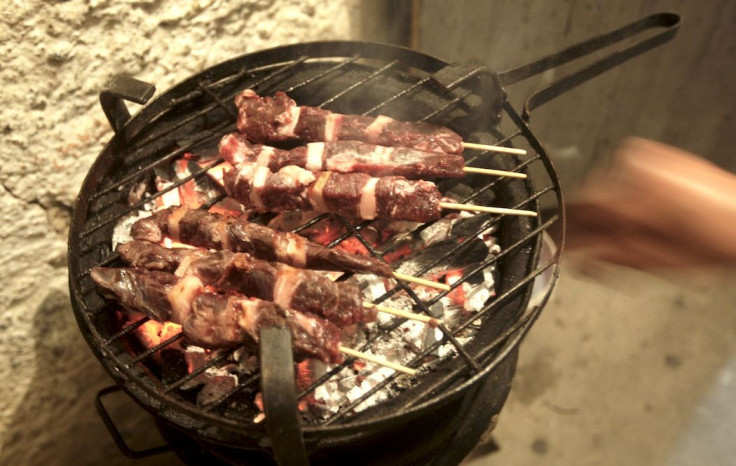Meat-Eaters "Commit Sex Crimes" Says Indian School Textbook

Meat-eaters "easily cheat, lie, forget promises and commit sex crimes," an Indian school textbook for 11 and 12-year-olds writes.
The New Healthway, published by one of India's leading publishers, offers education on issues from health and hygiene to sex education and exercise, according to BBC.
"The strongest argument that meat is not essential food is the fact that the Creator of this Universe did not include meat in the original diet for Adam and Eve. He gave them fruits, nuts and vegetables," according to a chapter entitled Do We Need Flesh Food?
The chapter educates children of the "benefits" of being vegetarian and goes on to list "some of the characteristics" found among meat-eaters, saying that non-vegetarians "easily cheat, tell lies, forget promises, they are dishonest and tell bad words, steal, fight and turn to violence and commit sex crimes".
The book also claimed "it is the waste products which produce the flavor of meat," and praised the Japanese of their vegetarian diet, while failing to mention their love of seafood.
It is still unknown as to which Indian schools have bought the book for their students, and educators say that it is worrying that such a book is available as educational resource.
Academics have encouraged the government to exercise greater control, but the chief of India's Central Board for Secondary Education says that schools should monitor content as educational institutions themselves are responsible for the choice of textbooks.
"This is poisonous for children," Janaki Rajan of the Faculty of Education at Jamia Millia University in Delhi told the BBC. "The government has the power to take action, but they are washing their hands of it."
The chapter on eating meat also refers to Eskimos or Inuit as "lazy, sluggish and short-lived," because they live on "a diet largely of meat."
The book also adds that the Arabs who helped in building the Suez Canal lived on wheat and dates and thus were superior to the "beef-fed Englishmen" doing the same work.
The book's advice on marriage was also questionable, suggesting that women should get married between the ages of 18 and 25.
"To get married without a bad name is a dream of every young girl," the book said, according to NDTV.



























